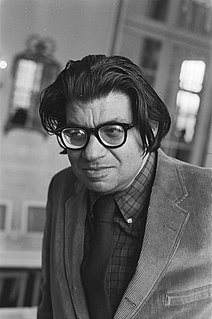A Quote by Nicole Krauss
The clarity was startling and Samson wondered whether he was imagining these moments. Not that they hadn't happened at all, but that they had been embellished by details from elsewhere, fragments that survived the obliteration of other memories, vagrant data that gravitated and stuck to what was left to remember. But in the end he rejected this idea. The memories were too perfect: take one detail away and they collapsed into disorder.
Related Quotes
You have your wonderful memories," people said later, as if memories were solace. Memories are not. Memories are by definition of times past, things gone. Memories are the Westlake uniforms in the closet, the faded and cracked photographs, the invitations to the weddings of the people who are no longer married, the mass cards from the funerals of the people whose faces you no longer remember. Memories are what you no longer want to remember.
Photography has definitely been my favorite way to remember things. At least for me that’s how my brain processes things, of memories or moments - if I take a picture of it I can remember so many more details. I think it’s about choosing the exact picture in my head that signifies or symbolizes a moment - almost as if you’re using film. It’s almost archaic.
He owned a whole world full of memories, of lovely moments relived and happy recollections. I'm not saying he was happy or that he didn't suffer. He suffered very much, but he did not despair; he still drew nourishment from what he had been given. But the sadness never left him. Happiness needs more than memories of the past to feed on; it also needs dreams of the future.
And I start to say, no. Start to ask him to please just take it off and put it away. Start to explain how it holds far too many memories for me. But then I remember what Damen said once about memories - that they're haunting things. And because I refuse to be haunted by mine - I just take a deep breath and smile when I say, "You know, I think it looks really good on you. You should defiantly keep it.
She had realized there are only fragments, that 'memories' always consist of fragments the mind puts together into a pattern, adapts a picture staked out early without the need for a conenction with anything that really happened. A great deal is misunderstood by small children, then stored as images that attract similar images, confirming and reinforcing.
It appears to me that the subject of music, from Machaut to Boulez, has always been its construction. Melodies of 12-tone rows just don't happen. They must be constructed....To demonstrate any formal idea in music, whether structure or stricture, is a matter of construction, in which the methodology is the controlling metaphor of the composition...Only by 'unfixing' the elements traditionally used to construct a piece of music could the sounds exist in themselves--not as symbols, or memories which were memories of other music to begin with.
I could remember the details as if it had happened yesterday, even though it was hard to believe some of it had happened at all. Funerals were tricky like that. And life, I guess. The important parts you blocked out altogether, but the random, slanted moments haunted you, replaying over and over in your mind.
In the middle of this it was good to have some moments in which whatever was left of you could sit in silence. When you could remember. When the evidence that had gathered could be sorted. And it was a difficulty if another person imagined these moments were their property. Your life got sliced from two sides like a supermarket salami until there was nothing left in the middle. You were the bits that had been given away right and left to others. Because they wanted the piece of you that belonged to them. Because they wanted more. Because they wanted passion. And you did not have it.
Even grief recedes with time and grace. But our resolve must not pass. Each of us will remember what happened that day, and to whom it happened. We'll remember the moment the news came -- where we were and what we were doing. Some will remember an image of a fire, or a story of rescue. Some will carry memories of a face and a voice gone forever.






































